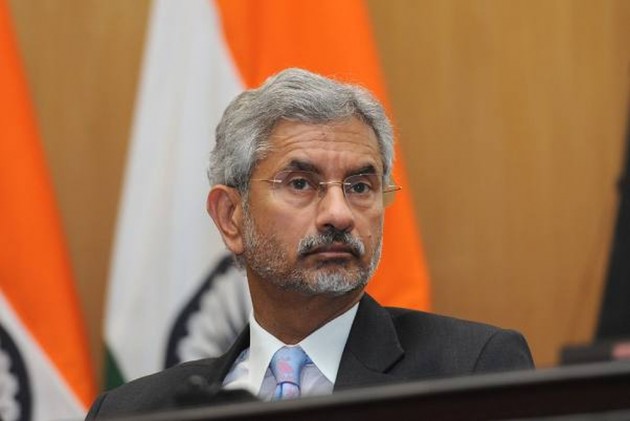
India, China lead change in world opinion against Russia for Ukraine war

If one goes by speeches by international community at the United Nations General Assembly earlier this week, it is becoming increasingly clear that international opinion is decisively shifting against Russia.
A number of non-aligned countries are joining the United States and its allies in condemning Moscow’s war in Ukraine and its threats to the principles of the international rules-based order. On Tuesday, Wednesday and Thursday, much of the international community spoke out against the conflict in a rare display of unity at the often fractured United Nations.
India, China criticise
The tide had appeared to be turning against Putin even before Thursday’s UN speeches. Chinese and Indian leaders had been critical of the war at a high-level summit last week in Uzbekistan. The two Asian countries continued in the same vein at the General Assembly too.
Also read: US media praises PM Modi for telling Putin now is ‘not an era of war’
Indian Foreign Minister S Jaishankar said the trajectory of the Ukraine conflict is a matter of a profound concern for the international community. He called for accountability for atrocities and abuses committed in Ukraine. If egregious attacks committed in broad daylight are left unpunished, this council must reflect on the signals we are sending on impunity. There must be consistency if we are to ensure credibility, he said.
Chinese Foreign Minister Wang Yi was careful not to condemn the war but said that China’s firm stance is that the sovereignty and territorial integrity of all countries should be respected. The purposes of the principles of the UN Charter should be observed.
It was striking to hear Russia’s nominal friends like China and India, following up on last weeks remarks, speak of grave concerns they have about the conflict and its impact on global food and energy shortages as well as threats to the concepts of sovereignty and territorial integrity that are enshrined in the UN Charter.
Brazil registered similar concerns. Brazil, Russia, India, China and South Africa make up the BRICS bloc of countries, which has often shunned or outright opposed Western initiatives and views on international relations.
That the tide is turning against Russia became more clear when the UN General Assembly disregarded Russia’s objections and voted overwhelmingly to allow Ukrainian President Volodymyr Zelenskyy to be the only leader to address the body remotely, instead of requiring him to appear in person.
Putin’s mobilisation plan the trigger
The shift against Russia accelerated after President Vladimir Putin on Wednesday announced the mobilisation of additional 300,000 troops to Ukraine, signalling the unlikelihood of a quick end to the war.
In a televised address, Putin also suggested that nuclear weapons may be an option. That followed an announcement of Russia’s intention to hold independence referenda in several occupied Ukrainian regions with an eye toward possible annexation.
Also read: Putin announces troop mobilisation for Ukraine; warns West ‘it’s not a bluff’
These announcements came at the time that the General Assembly was taking place in New York and numerous world leaders used their speeches on Tuesday and Wednesday to denounce Russia’s war. The trend continued on Thursday both in the assembly hall and at the usually deeply divided UN Security Council, where, one-by-one, almost all of the 15 council members served up harsh criticism of Russia, a council member, for aggravating several already severe global crises and imperiling the foundations of the world body.
This shift in opinion offers some hope to Ukraine and its Western allies that it will add pressure on Putin to negotiate a peace. But few are unduly optimistic.
Putin has staked his legacy on the Ukraine war and few expect him to back down. And, Russia is hardly isolated. Many of its allies depend on it for energy, food and military assistance and are likely to stand by Putin regardless of what happens in Ukraine.
The lone exception
Only one country, Belarus, a non-council member and Russia ally that was invited to participate, spoke in support of Russia, but also called for a quick end to the fighting, which it called a tragedy.
Even a number of nations that maintain close ties with Moscow have said publicly that they have serious questions and concerns about President Putin’s ongoing invasion, Secretary of State Antony Blinken said.
Foreign ministers and top officials from Albania, Britain, France, Ireland, Gabon, Germany, Ghana, Kenya, Mexico and Norway delivered similar rebukes to Russia.
Unsurprisingly, Russian foreign minister Sergey Lavrov was unapologetic and defensive at the same time and specifically targeted Zelenskyy. Citing a phrase often attributed to President Franklin Roosevelt, Lavrov called Zelenskyy a “bastard”, but said Western leaders regarded him as our bastard.
He repeated a long list of Russia’s complaints about Ukraine and accused Western countries of using Ukraine for anti-Russia activities and policies. Everything I’ve said today simply confirms that the decision to conduct the special military operation was inevitable, Lavrov said, following Russian practice of not calling the invasion a war.
(With Agency inputs)

